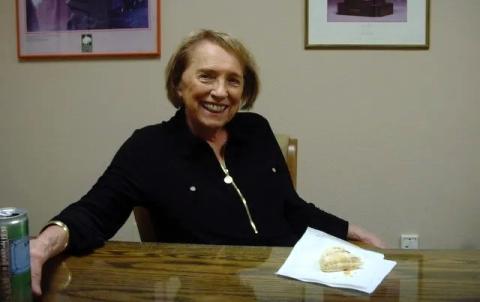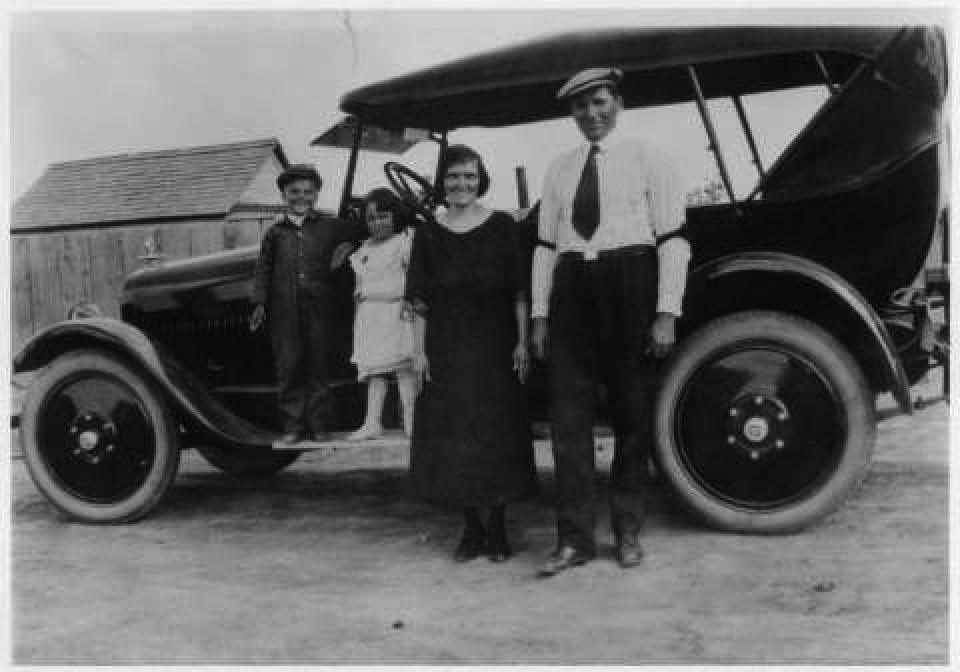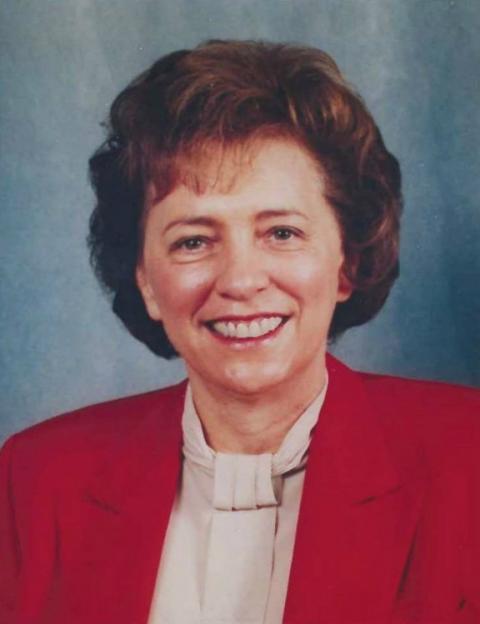“Take the Jump”: Kathy Karpan on Breaking Barriers and Building Wyoming’s Future
In 2022, Aubrey Edwards interviewed Kathleen “Kathy” Karpan for “Elected Roles,” a University of Wyoming American Heritage Center project examining a troubling paradox: Wyoming was the first government in world history to grant women full political rights in 1869, yet now ranks 48th in the nation for women’s representation in the state legislature.
When Kathy Karpan sat down for the oral history interview, she wrestled with a question many trailblazers face: what legacy will she leave behind? Her answer reveals both humility and wisdom gained from decades in Wyoming politics.

“The older you get,” Karpan reflected, “the more you appreciate that the accomplishments that you took pride in fade over the years because those who follow you exceed.” She recalled meeting Nellie Tayloe Ross, Wyoming’s pioneering governor and the first woman governor in the United States, back in 1972. When asked about her greatest honor, Ross surprised the young Karpan—it wasn’t being governor or director of the U.S. Mint. It was having a lake in Yellowstone named after her.
“No matter how hard we try to accomplish something in political life or otherwise, others will outdo it,” Karpan concluded. “There are some things that are done—the Washington Memorial, the Lincoln Memorial—but most of us, it’s dust that flies into the air.”
Yet some dust leaves a mark. Born in Rock Springs in 1942 and raised in both Rock Springs and Rawlins, Karpan became Wyoming’s Secretary of State from 1987 to 1995. As she noted in the interview, she was “the first woman elected to an office other than superintendent, who wasn’t a widow, who in effect had the benefit of her husband having held office before her.” Women like Nellie Tayloe Ross, Minnie Mitchell, and Thyra Thomson had blazed trails before her, but Karpan represented a new chapter—women running and winning on their own political merits.
Growing Up Political in Coal Country
Karpan’s political education began early in Rock Springs’ Number Four neighborhood, a tight-knit immigrant community where politics and survival intertwined. “I was in the first grade,” she remembered, “and Georgie Brent—the guy gave me my first kiss—but we were arguing about who should be elected president. My dad was for Harry Truman, his dad was for Tom Dewey.”
Her parents, Thomas and Pauline, were first-generation Americans whose parents emigrated from Croatia and Slovenia. “I think immigrants are great patriots because they came to this country from effort, not because their parents brought them into this world,” Karpan explained. “They made an effort to get here because they believed in a better life.”

The Karpan household subscribed to at least three newspapers, and political discussion dominated dinner conversations. “When I was eight or ten years old, I thought Dwight Eisenhower’s first name was ‘that goddamn,’ because that was the way my father would refer to him,” she laughed.
But life in coal country wasn’t easy. Her father worked for the Union Pacific Railroad servicing coal mines and sustained a back injury. Her uncles suffered similar fates—finger loss, foot loss, black lung. “They didn’t want them going down the mines underground,” she said of the immigrant parents’ determination that their children get educated. “It wasn’t just a politically interested family. It was a whole neighborhood. You were expected to know who was the president, who was the vice president, what’s going on.”
A Career of Firsts and Fights
After earning degrees from the University of Wyoming and a law degree from the University of Oregon, Karpan worked for Representative Teno Roncalio in the 1960s and early 1970s. This experience shaped her understanding that politics could help individual people, not just shape grand policies.
She told the story of Rose Doak in Rock Springs, whose back porch collapsed from mine subsidence. Doak’s persistent advocacy led to the Surface Mining Control and Reclamation Act and the Abandoned Mine Land Fund. Years later, Karpan would come full circle: President Clinton appointed her as the first female director of the Office of Surface Mining Reclamation and Enforcement from 1997 to 2000.

“My grandparents came from Croatia and Slovenia to mine coal,” she marveled. “I grew up coal mining. And what do you know, I wind up being the director of the federal agency that supervises that program. Tell me, when they get off the gangplank, my grandparents, they might’ve said, ‘Oh, one of your children is going to be in charge of cleaning up the coal mines.’ And they’d go, ‘Wait, we got a shocker. It’s not going to be a boy, it’s going to be a girl that did it.’ Is that America?”
Three Principles for Living
Throughout her career, Karpan delivered what she estimated as “a thousand speeches,” often to women and young people. She always returned to three principles:
- “One is to believe in yourself,” she said. “If you are fortunate, and you’re born into a loving family as I was, with parents who cheer your every step, you believe in yourself. Sometimes you have to find mentors, or even role models you don’t know.”
- “Second is invest in yourself, and to me, fundamentally that means get an education, but it means many other things. Not everyone’s for college, it might mean a trade school, an art school.”
- “And the last one is, if you've done the first two, take a chance, take a risk, don’t be afraid.”
She loved quoting Butch Cassidy and the Sundance Kid: when trapped by gunfire, Butch suggests jumping off a cliff into a river. The Sundance Kid admits he can’t swim. Butch starts laughing: “Hell kid, the fall is going to kill us anyway. So the point is, take the jump, take the jump.”
Why Wyoming’s “Equality State” Falls Short
When asked why Wyoming now ranks 48th in women’s representation in the legislature despite its proud suffrage history, Karpan didn't mince words. “If you’re not a thug, you better not run,” she said bluntly. “The vulgarity, the brutality, the mean-spiritedness, the ideological rigidity, the punishing, the whole internet apparatus: ‘I can get you. I can bombard you. I can trash you.’ Women do not like that.”
“We had more women in office 50 years ago. Trust me. I know. I was there,” she added. Would she run today? “I would not run today. And mind you, I’ve told you how much I love public [service]—I would not run today.”
Yet Karpan remained optimistic about politics itself. “Politics is still a noble calling, and we still need the best and the brightest and the most caring and generous and tolerant and loving of our young people to come in and say, ‘No, you know what, if it’s not good, then let’s make it good.’”
Her final advice echoes across generations: “Do something with your life that’s beyond getting and spending, but giving.” And perhaps most importantly: “If I do a good job, it will make it easier for the next one to do it. Do a good job so it’ll be easier for the next one to come in. That’s my life.”
For more about Kathy Karpan’s life and career, see WyoHistory.org’s article “Kathy Karpan: A Life in Law and Politics” by Sarah Gorin.
